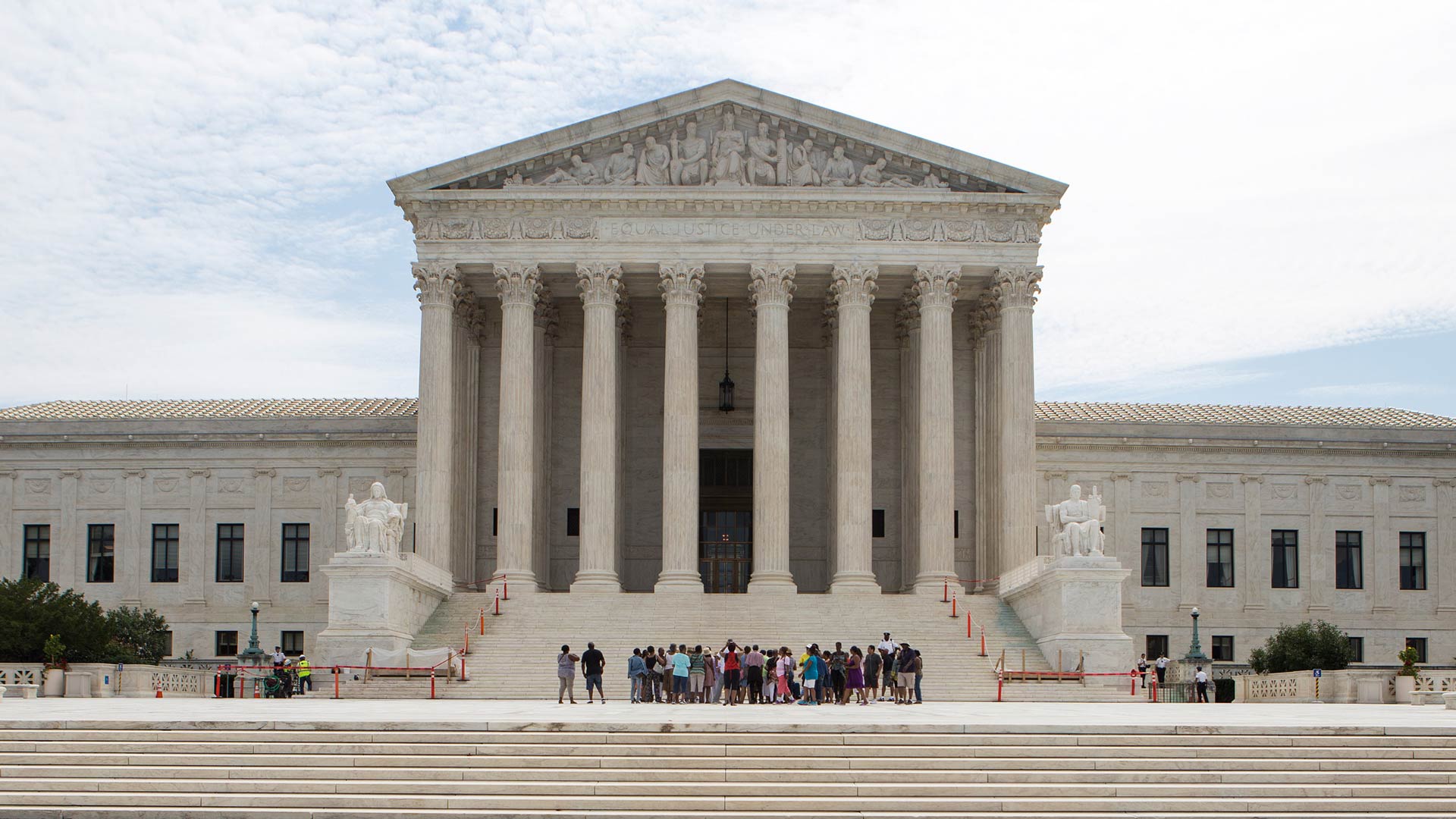 The steps outside the Supreme Court in Washington, DC.
The steps outside the Supreme Court in Washington, DC.
The Supreme Court of the United States has announced it'll hear a case debating how pandemic relief funds will be distributed to Indigenous tribes, specifically if Alaska Native Corporations qualify.
When the Coronavirus Aid, Relief and Economic Security Act — CARES Act — went into effect it allocated $8 billion to tribal governments, which it defined as “a recognized governing body of an Indian Tribe." Throughout the pandemic, different governments, lawsuits and courts have disagreed on who meets that definition. Melissa Tatum, a law professor at the University of Arizona within the Indigenous Law and Policy Center, said the federal government breaks Indigenous peoples into three different categories: people indigenous to the lower 48 states are considered American Indians, people from Alaska are called Alaska Natives and then there are Native Hawaiians. Each category has its own political relationship with the United States.
"If Alaskan Native Corporations are not eligible, that increases the pool of money available to tribes as a whole in the lower 48, but it doesn't guarantee that any one tribe will get any more money," she said.
After the high court argues the case, she said the federal government will have to decide how that money is distributed among the tribes, if the corporations are excluded from the funding.
"We're talking about [the CARES Act] that distributed money to governments, and [Congress] used an ambiguous term that's not clear who of any Alaska Natives were intended to be encompassed within that term," Tatum said when discussing the use of "Indian Tribe" in the definition.
If Alaska Native Corporations are deemed ineligible, they could be excluded from other sources of funding or powers.
After centuries of political relationships with tribes in the continental U.S., Tatum said the federal government in the Alaska Native Claims Settlement Act of 1971 didn't set up reservations to avoid some of the land claims it had in the lower 48 states.
According to the act, it "completely extinguished" Indigenous claims to the land but providing some funds and land. It authorized two sets of corporations to receive that money and land, collectively called Alaska Native Corporations.
Tatum said in 1934 the Indian Reorganized Act outlines how the federal government learned it is better to work with the tribal governments in the lower 48 that it had at first tried to destroy. However, governments need funding and many do that through taxation, but she said that was difficult since the federal government had eliminated the industry or decreased the value of the land near reservations for tribes to collect taxes on.
"Congress created a way for tribes to organize as a government and a way to organize as a business…to fund the tribal government," Tatum said. "When Congress passed the Alaska Native Claims Settlement Act they did something similar….It created a hybrid organization."
She said the entities were separated and not "one entity with two faces."
"[The corporations] do earn money, but that's because they have to fund some of the services that are normally provided by a government," she said. "It's not that they're supposed to be earning big mega bucks and putting them in the bank. These are the substitute for the taxing ability."
After the CARES Act was adopted into law, the U.S. Treasury Department said in April that Alaska Native Corporations were eligible for the aid, but that announcement was met by three groups of tribes, including six federally recognized tribes from Alaska and 12 for the lower 48 states, filing lawsuits disputing the claim. They said the corporations did not meet the definition of as "Indian Tribes" as described in the Indian Self-Determination and Education Assistance Act.
The three cases were consolidated by a district court and it ruled that the corporations qualify as "Indian Tribes."
A three-judge appeals court reversed the ruling, saying Alaska Native Corporations were ineligible. According to that ruling, more than $162 million was set aside for the for-profit businesses.
That led the treasury department to ask the high court to review the case.

By submitting your comments, you hereby give AZPM the right to post your comments and potentially use them in any other form of media operated by this institution.